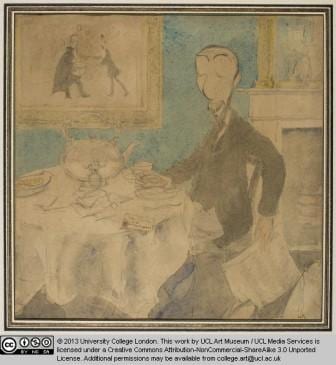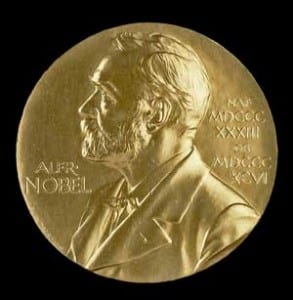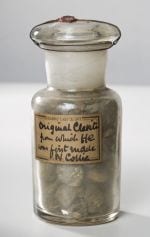An un-noble argument over a Nobel subject
By Emma-Louise Nicholls, on 19 February 2014
 After a few drinks last weekend, my sister, who is doing a Ph.D at a ‘different’ university, and I got in to a friendly ‘my horse is bigger than your horse’. I gloated that UCL has tentacles that reach around the world, is ranked within the top four universities within the UK, and most importantly (because this is how I measure university performance) we have several Nobel Prizes. Well as it turns out, so does her university, but the important thing is that we have more.
After a few drinks last weekend, my sister, who is doing a Ph.D at a ‘different’ university, and I got in to a friendly ‘my horse is bigger than your horse’. I gloated that UCL has tentacles that reach around the world, is ranked within the top four universities within the UK, and most importantly (because this is how I measure university performance) we have several Nobel Prizes. Well as it turns out, so does her university, but the important thing is that we have more.
Although the conversation was entirely (ok, mostly) in jest, it made me curious as to how justified my claims of ‘having a bigger horse’ actually were and I set about some googling. As luck would have it, even after calibrating the data for variables such as my university is around 130 odd years older than hers, and also taking into consideration the fact that the Nobel Prize only began in 1901 whereas we were founded in 1827, UCL are still higher achievers. Mwah hah hah. According to the website www.nobelprize.org, there have been 487 Nobel Prizes given out worldwide since its inception. Well let me hear an ‘oooo’ for the fact that 21 of those belong to us. As in UCL, not my sister and myself. (more…)
 Close
Close



